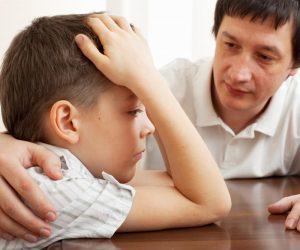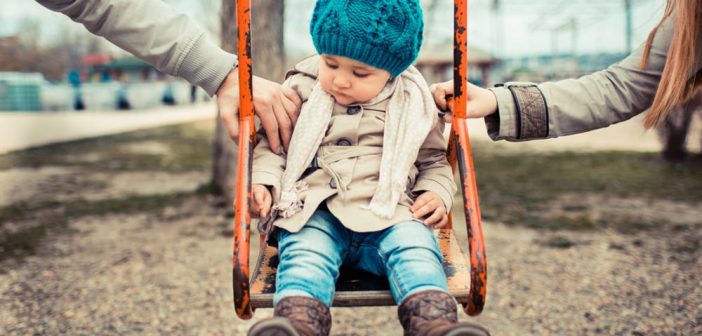Divorce. It is a phenomenon that is not rare anymore. But it remains a cause of stress and suffering, especially in children. It often causes bitterness, stress, feelings of betrayal and loss of self-esteem in children. Some researchers say the impact may be seen many years after the divorce, when the child enters a romantic relationship. Read more about 9 tips for divorced parents, to help raise well-adjusted children.
Generally, parents instinctively try to make their marriage work for the sake of their child, but sometimes a divorce seems inevitable. But they can choose behaviours or steps to ensure their child is not severely impacted by the divorce.
- Love is the answer: Children thrive on love.
 Even if your love life is impacted, do not let the cocoon of love that protects your child be broken. Love and discipline your child, as always.
Even if your love life is impacted, do not let the cocoon of love that protects your child be broken. Love and discipline your child, as always. - Reassure them: Children below the age of nine tend to blame themselves for the divorce. Let them know the divorce is not their fault and that both of you will continue to love and provide for them, always.
- Listen to them: Encourage them to voice their feelings and thoughts. They might feel and think differently from you. Just hear them out without judgment and do not try to fix how they feel.
- Do not make them choose: Understand that for your child both the parents are important. Do not criticise or bad mouth your spouse in front of your child. Do not ask him/her to take sides. Your child is a part of both of you. If you criticise your ex-spouse you are effectively criticising your child. Spare him/her that complication.
- Your child is not a messenger: Find another way to communicate with your ex-spouse. Do not put the burden of communicating your thoughts and feelings on your child.
- Find support: A parent needs emotional and logistical support to recover from a divorce. If your mental state of mind is stressed and in turmoil, you will unwittingly pass it on to your child. Keep friends, family and neighbours close. Take their support so you can take care of yourself and your child. DO NOT make your child your confidant, especially regarding your divorce and your feelings about your ex-spouse.
 Get a life: Do not fill the vacuum in your life by obsessing over your child. If you haven’t already, find a hobby, friends or some activity that make you feel happy. If you accept your new life so will your child. If however you hang on to the suffering, so will your child.
Get a life: Do not fill the vacuum in your life by obsessing over your child. If you haven’t already, find a hobby, friends or some activity that make you feel happy. If you accept your new life so will your child. If however you hang on to the suffering, so will your child.- Ensure happy visits: If your child is visiting your ex-spouse or grandparents, make sure you make it a stress-free occasion. Be flexible about schedules, and be tolerant of your ex-spouse’s discipline and reward system. Be patient with your child during these transfer periods. Avoid grilling your child about the visit and about your ex-spouse’s life. Just ask him/her if the visit was fun and let it be.
- Make joint decisions: This one may be hard to do but very important for your child’s development. Try to let go of your grudges and reach a level of amicability with your ex-spouse that allows you to discuss and agree on ways to raise your child in the most effective manner. This will also help you discipline your child better as he/she will not be able to manipulate or take advantage of either of you owing to a communication breakdown between the two of you.
Research shows that children who are from broken families are not necessarily ill-adjusted adults. A lot depends on the nature of the divorce and how the parents behave post-divorce. If parents can put their feelings aside and surround their child with an atmosphere of love, discipline and tolerance, they can succeed in mitigating the effects of divorce on their child.








1 Comment
Dear Aakriti,
Thank you for your tips on parenting after a divorce.
Your concise list of actions contains most of what counselors and co-parenting classes teach. Applying these will make a mayor difference for the children and for the ease of mind of the parents.
Parents that keep fighting instead of setting apart their emotions continue hurting their children of divorce. Divorced parents have to understand that their relationship does not end with the divorce: they have a shared responsibility for the well being and for raising their children.